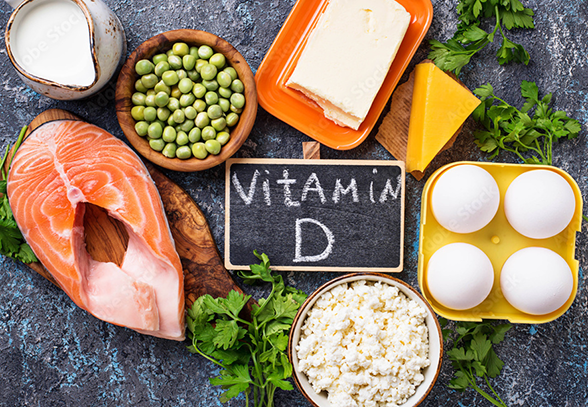Are You Getting Your Vitamin D?

Vitamin D is a crucial nutrient vital to maintaining overall health and well-being. It is often referred to as the “sunshine vitamin” because the body produces it during sun exposure to the skin. However, many people do not get enough vitamin D from sunlight alone, and it can be challenging to get enough from diet alone.
Vitamin D is essential for maintaining strong bones and teeth, as it helps the body absorb calcium. It may also increase muscle strength to help prevent falls and broken bones in older adults. It also plays a role in the immune system and may help protect against certain types of cancer, heart disease, and autoimmune disorders. Furthermore, vitamin D deficiency is linked to depression, fatigue, and muscle weakness.
The best dietary sources of vitamin D are fatty fish, such as salmon and tuna, and egg yolks. However, these foods are only sometimes readily available or affordable for everyone, and some individuals may not consume them due to dietary restrictions or personal preferences. For example, vegetarians and vegans may need help getting enough vitamin D from diet alone, as many of the best nutritional sources come from animal products.
Here are some examples of Vitamin D foods to add to your diet:
- Seafood – Rainbow Trout (freshwater), Salmon, Light Tuna (canned), Herring, Sardines, Talapia, and Flounder.
- Dairy and Soy Alternatives – Eggs, Soy Milk, Low fat and Fat-free Milk, Plain, nonfat yogurt, Kefir, American Cheese, low fat or fat-free.
- Vegetables – Mushrooms
- Fruit – 100% orange juice, fortified
- Other sources – Almond milk, unsweetened; Rice unsweetened, and beef liver.
Certain fortified foods, such as milk and cereal, contain added vitamin D. However, getting enough vitamin D from diet alone can still be challenging. Individuals with a restricted diet or a medical condition may have more difficulty absorbing nutrients. For these individuals, a vitamin D supplement may be necessary. The recommended daily vitamin D intake varies based on age and other factors, but most adults should aim for 600-800 international units (IU) per day. It is always best to consult a healthcare professional before starting any new supplement regimen.
Vitamin D is an essential nutrient in maintaining overall health and well-being. While it can be challenging to get enough from diet alone, there are several dietary sources of vitamin D, such as fatty fish and fortified foods. However, for some individuals, a vitamin D supplement may be necessary. Ask your doctor to determine the right amount of vitamin D for your needs.
A new study shows the link between vitamin D supplementation and incident dementia:
- Researchers assessed the association between vitamin D supplementation and the incidence of dementia.
- They found that vitamin D supplementation was linked to a lower dementia incidence.
- Further studies are needed to certify the results.
A well-balanced diet is important to maintain optimal health. This may be difficult for adults recovering from an illness, hospital stay, or managing chronic conditions. Many Medicare Advantage plans offer home-delivered meals to their members at no cost. Check with your plan to see if you qualify. Go here to learn more about home-delivered meals.

Alexandria is the Senior Product Manager at GA Foods. She is a Registered Dietitian and has worked in clinical rehabilitation facilities and the post-discharge food industry. Her experience gives Alexandria unique insights into social disparities and how health is affected. She and her growing family live in Tennessee, enjoying the mountain air, gardening, and tending their chickens.

